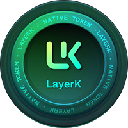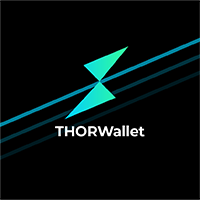 |
|
 |
|
 |
|
 |
|
 |
|
 |
|
 |
|
 |
|
 |
|
 |
|
 |
|
 |
|
 |
|
 |
|
 |
|
Cryptocurrency News Articles
Demystifying the Bitcoin Node: The Backbone of the Cryptocurrency Universe
Mar 27, 2024 at 12:01 am

What Exactly Is a Bitcoin Node?
Blockchain networks are made up of nodes, which are computers running software and storing crucial data for managing and running the network. Each node's computational capacity is tailored to its purpose, with Bitcoin nodes playing specialized roles essential to the cryptocurrency's success.
Full nodes, the backbone of Bitcoin's blockchain, maintain a comprehensive, up-to-date copy of the blockchain. They verify transactions and blocks, ensuring the blockchain's integrity and continuity. Full nodes serve as gatekeepers, validating transactions against network rules and history, and storing them in a pool of unconfirmed transactions, the "mempool," until miners add them to blocks.
Validating Bitcoin transactions involves:
- Verifying digital signatures for authenticity
- Determining transaction accuracy
- Checking available balances and transaction fees
- Preventing double-spending
Authenticated transactions are disseminated throughout the network by full nodes, where miners collect and group them into blocks.
Full nodes also scrutinize miners' work, ensuring compliance with consensus mechanisms. They check block formats, adhere to proof-of-work requirements, and prevent blocks from exceeding size limits.
Crucially, full nodes prevent miners from wielding excessive power and mitigate the risk of 51% attacks by rejecting inauthentic blocks. However, the decentralized and competitive nature of mining itself serves as the primary defense against such attacks.
Despite their critical role, nodes do not receive block rewards like miners. Node operators typically run nodes to support network security and health, protect privacy, or benefit commercially, such as exchanges or wallet services requiring real-time blockchain data.
Bitcoin Mining Nodes: Unveiling the Block Creation Process
A Bitcoin mining node, also known as a Bitcoin miner, is a particular type of full node. While all mining nodes perform full node functions, not all full nodes participate in mining.
Mining nodes participate in the proof-of-work (PoW) process, which involves solving complex mathematical problems to verify blocks of transactions and broadcast new blocks to the network. The successful miner receives newly minted Bitcoin as a reward.
Mining nodes engage in intense competition, using substantial computing power and energy to solve these problems. They employ Bitcoin mining software that defines the rules for creating and proposing blocks to the network.
Before verifying and proposing a new block, mining nodes validate transactions. The new block is then broadcast back to full nodes, which assess its adherence to network rules, including Bitcoin creation regulations.
Additional Bitcoin Node Types: Unveiling the Blockchain Ecosystem
Apart from full nodes and mining nodes, other types of Bitcoin nodes contribute to the network:
- Light Nodes (SPV): These nodes store a "lightweight" blockchain version, retrieving data from full nodes when needed. They are suitable for devices with limited storage or processing power.
- Lightning Nodes: These nodes facilitate faster and cheaper Bitcoin transactions on the Lightning Network, a layer-two solution built on the Bitcoin network.
- Archive Nodes: These nodes maintain complete blockchain copies, including historical data, providing valuable information for data validation and synchronization.
- Pruned Nodes: These nodes store blockchain history within defined limits, removing older data to maintain a manageable size.
- Mining Pool Nodes: These nodes coordinate resources from mining groups, distributing rewards fairly among participants after a successful block verification.
Comparative Analysis: Bitcoin Miners vs. Bitcoin Nodes
The following table highlights the functional distinctions between Bitcoin nodes and miners:
| Feature | Miner | Node |
|---|---|---|
| Function | Verifies blocks, adds new blocks to the blockchain, and receives rewards | Validates transactions, broadcasts transactions and blocks |
| Role in Transaction Process | Selects and groups transactions, verifies blocks, and adds new blocks | Validates and broadcasts transactions, checks miner's work |
| Compensation | Receives block rewards (BTC and transaction fees) | Typically does not receive rewards |
| Primary Responsibility | Securing the network, creating new blocks | Ensuring transaction validity and network integrity |
| Network Contribution | Participates in proof-of-work consensus, adds new blocks to the blockchain | Verifies transactions, broadcasts blocks, and helps maintain network security |
Collaboration Between Bitcoin Miners and Nodes: A Symbiotic Relationship
Bitcoin miners and nodes maintain an interdependent relationship, relying on each other for the following critical processes:
- Transaction Validation and Broadcasting: Nodes verify and broadcast transactions, ensuring protocol compliance and preventing double-spending.
- Mempool: Nodes maintain their own version of a pool of unconfirmed transactions, the "mempool," from which miners select transactions for inclusion in blocks.
- Transaction Selection by Miners: Miners select and validate transactions, creating unique blocks with a Merkle tree summarizing all transactions.
- Mining Process: Proof-of-Work, Block Addition, and Rewards: Miners compete to solve complex hashing problems, adding new blocks to the blockchain and receiving rewards.
- Consensus and Block Addition: Nodes verify new blocks, achieving consensus on the blockchain's state and preventing double-spending.
- Broadcast of New Blocks: Instead of broadcasting the entire updated blockchain, only the new block is disseminated, allowing other nodes to independently validate and add the block to their copies.
The Paramount Importance of Bitcoin Nodes
The significance of Bitcoin nodes and their impact on the Bitcoin network cannot be overstated. These core elements not only validate and broadcast transactions but also achieve consensus via the Bitcoin consensus mechanism, ensuring the secure addition of new, immutable blocks to the blockchain.
Nodes serve as communication hubs and intermediaries, ensuring that transactions and blocks are transmitted across the network, effectively routing data. They play a pivotal role in maintaining the decentralized nature of Bitcoin, preventing reliance on a single software entity, and reducing vulnerabilities and attack risks.
In conclusion, Bitcoin nodes and miners are indispensable components of the Bitcoin blockchain, working together to ensure its integrity, security, and smooth functioning.
Disclaimer:info@kdj.com
The information provided is not trading advice. kdj.com does not assume any responsibility for any investments made based on the information provided in this article. Cryptocurrencies are highly volatile and it is highly recommended that you invest with caution after thorough research!
If you believe that the content used on this website infringes your copyright, please contact us immediately (info@kdj.com) and we will delete it promptly.


















![The Graph Price Prediction [GRT Crypto Price News Today] The Graph Price Prediction [GRT Crypto Price News Today]](/uploads/2025/11/07/cryptocurrencies-news/videos/690d4df44fe69_image_500_375.webp)










































